Author: dorner
South/Southeast Asia Library 50th Anniversary Exhibit Launch
The Bernice Layne Brown Gallery on the first floor of Doe Library is now housing the exhibit “Celebrating 50 Years of Excellence: South & Southeast Asia Scholarship and Stewardship at Berkeley, 1970-2020.”
This exhibit celebrates the academic achievements of Berkeley South and Southeast Asia scholars across disciplines. It recognizes Berkeley’s robust South and Southeast Asian language instruction program, distinguished teaching award recipients, and previous Charlene Conrad Liebau Library Prize for Undergraduate Research winners and honorable mentions.
The South/Southeast Asia Library plays a pivotal role in building interdisciplinary collections in all major formats and languages and has, for five decades, served as the scholarly lifeline for vibrant South and Southeast Asian Studies communities, both local and global.
This exhibit uses a variety of faculty publications and special collections to highlight Berkeley scholarship’s evolution, scope, and profound impact. Source collections and libraries whose noteworthy treasures are most featured in the exhibit include The Bancroft Library, Doe Library, Music Library, and the South/Southeast Asia Library.
The exhibit will be on display until the end of October 2021.
Primary Sources: Black Thought and Culture
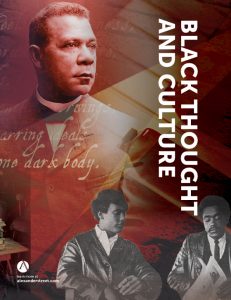 The Library recently acquired Black Thought and Culture, an electronic collection of approximately 100,000 pages of non-fiction writings by major American black leaders, covering 250 years of history. It also includes a great deal of previously inaccessible material, including letters, speeches, political leaflets, interviews, periodicals, and trial transcripts. Highlights include:
The Library recently acquired Black Thought and Culture, an electronic collection of approximately 100,000 pages of non-fiction writings by major American black leaders, covering 250 years of history. It also includes a great deal of previously inaccessible material, including letters, speeches, political leaflets, interviews, periodicals, and trial transcripts. Highlights include:
- The transcript of the Muhammad Ali trial
- A full run of The Black Panther newspaper, with full-color images of every page as well as searchable text
- 2,500 pages of exclusive Black Panther oral histories owned by the Dr. Huey P. Newton Foundation
Trial: Slavery and Anti-Slavery, parts 2-4
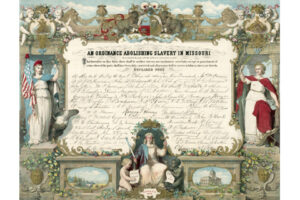
Until April 2, 2021, the Library has trial access to parts 2-4 of Slavery and Anti-Slavery. All modules can be accessed from the A-Z database link.
Part I: Debates over Slavery and Abolition sheds light on the abolitionist movement, the conflicts within it, the anti- and pro-slavery arguments of the period, and the debates on the subject of colonization. It explores all facets of the controversial topic, with a focus on economic, gender, legal, religious, and government issues.
Part II: Slave Trade in the Atlantic World charts the inception of slavery in Africa and its rise as perpetuated on both sides of the Atlantic Ocean, placing particular emphasis on the Caribbean, Latin America, and United States. More international in scope than Part I, this collection was developed by an international editorial board with scholars specializing in North American, European, African, and Latin American/Caribbean aspects of the slave trade.
Part III: The Institution of Slavery expands the depth of coverage of the topic. Part III explores, in vivid detail, the inner workings of slavery from 1492 to 1888. Through legal documents, plantation records, first-person accounts, newspapers, government records, and other primary sources, this collection reveals how enslaved people struggled against the institution. These rare works explore slavery as a legal and labor system, the relationship between slavery and religion, freed slaves, the Shong Masacre, the Dememara insurrection, and many other aspects and events.
Part IV: Age of Emancipation includes numerous rare documents related to emancipation in the United States, as well as Latin America and the Caribbean. This collection supports the study of many areas, including activities of the federal government in dealing with former slaves and the Freedmen’s Bureau, views of political parties and postwar problems with the South, documents of the British and French government on the slave trade, reports from the West Indies and Africa, and other topics.
Trial: Rock’s Backpages
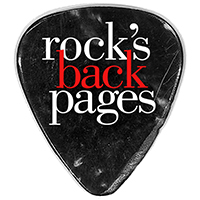 Through April 5, 2021, the Library has trial access to Rock’s Backpages, the world’s biggest archive of music journalism and pop writing of the last 60 years.
Through April 5, 2021, the Library has trial access to Rock’s Backpages, the world’s biggest archive of music journalism and pop writing of the last 60 years.
Event: Map the Bay Student Mapmaking Contest for Bay Area students

The UC Berkeley Library is hosting our second annual Map the Bay Student Mapmaking Contest for Bay Area students. Online submissions are welcome from March 1, 2021 – April 9, 2021. Maps can be real or imaginary, hand drawn or created on a computer, as long as they have some Bay Area connection. Finalists will be featured in the virtual exhibit, Mapping the Bay. The winning entries (selected through public voting) are eligible for a $50 gift card!
Follow these TWO steps to enter the contest:
-
Fill out the entry form at: http://ucblib.link/map-contest-form
-
Email your map as a jpeg or pdf to: map-contest@berkeley.edu
Find more contest details here: Map the Bay: 2021 Student Mapmaking Contest
View the online exhibit and past entries here: Mapping the Bay
Questions? Email us at: map-contest@berkeley.edu
Susan Powell, On behalf of the UC Berkeley Earth Sciences & Map Library
Trial: Maps and Travel Literature
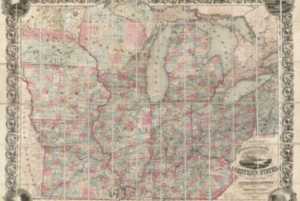 Through March 11 the Library has access to the Maps and Travel Literature module of Nineteenth Century Collections Online. You can access it with the proxied link for all NCCO collections and click into the Maps & Travel section or use this link to go directly to the collection.
Through March 11 the Library has access to the Maps and Travel Literature module of Nineteenth Century Collections Online. You can access it with the proxied link for all NCCO collections and click into the Maps & Travel section or use this link to go directly to the collection.
Trial: African American Newspapers, Series 2

Until March 15, the Library has trial access to Readex’s African American Newspapers, Series 2, which includes 75 newly available newspapers and complements Series 1, which the Library acquired last year.
“While African American Newspapers, Series 1, was created from the extensive newspaper archives of the Wisconsin Historical Society, Kansas State Historical Society, and the Library of Congress, Series 2 was created from the remarkable holdings of the American Antiquarian Society, Center for Research Libraries, the Library of Congress, and New York Public Library. Selections were guided by James Danky, editor of the monumental African-American Newspapers and Periodicals: A National Bibliography.”
Trial: UK Press Online
 Through the end of February, the Library has trial access to UKPress Online, a collection of historic and current newspapers. The following information was provided by the vendor.
Through the end of February, the Library has trial access to UKPress Online, a collection of historic and current newspapers. The following information was provided by the vendor.
The Daily Express (Updated daily) was launched in 1900 by Arthur Pearson as a mid-market broadsheet. The ha’penny Express was the first to devote its front page to news (rather than advertisements): “This paper is produced with the intention of supplying its readers with news. That is the excuse for its existence.” Advance orders for Issue One were a million and a half copies– “absolute impossibility to supply… we are doing our best.”
The first issue was over-subscribed. That edition began a series of articles from an Expressman in “Hayti”; another was despatched to Patagonia to search for a “giant ground sloth” – in vain, although his articles gripped readers for weeks. This policy of having “our man on the spot” became a hallmark of the Express.
When Pearson went blind, during the Great War, he sold the Express to Conservative MP Max Aitken, soon to be Lord Beaverbrook, the first “Fleet Street baron” and an evangelist of the free press – “a flaming sword which will cut through any political armour”; the paper’s symbol became The Crusader. Beaverbrook crusaded, both politically and editorially: despite personal advice to Edward VIII to give up Wallis Simpson, the Express notably chronicled every detail of their affair. And not always successfully: the Express’s vehemence against Attlee was credited with losing the 1945 election for Churchill!
By 1936, the Express had the world’s largest circulation of more than two million, rising to four million in the 1940s, under the seminal editorship of Arthur Christansen. It was one of the first newspapers to carry gossip, sport and women’s articles; it was the first to carry a crossword. With its commercial success and vast editorial staff around the world, the Express dominated Fleet Street; as a bemused Royal wrote, “I was met by a gaggle of reporters from the Daily Express and a gentleman from the Glasgow Herald”.
Express contributors run from the exiled Leon Trotsky to Evelyn Waugh (who lampooned Beaverbrook as Lord Copper – “up to a point”), William Hickey (Tom Driberg) and the cartoonist Giles.
The Express became a (black-top) tabloid in 1978. The Daily Star was a late-comer, as was the Star on Sunday, occupying the red-top tabloid slot in competition to the Sun and Mirror.
The Daily Star (Updated daily) was launched in 1978 (and is available from 2000) by Express Newspapers as a tabloid for the north of England, competing against The Sun’s Page 3 girls with its own topless Star Birds. In 1987, it lost a £500,000 libel action after accusing Tory deputy chairman Jeffrey Archer of paying hush money to a prostitute – a political scandal in those pre-Trump days…. Twelve years later, the now-Lord Archer admitted he had lied and, in 2002, he had to repay the cash with costs and interest – £1.5million. The same year, the Star launched a Sunday sister (all available – updated weekly).
Church Times (updated weekly): The World’s leading Anglican newspaper. The first 26 years, from the paper’s very first issue in 1863 to 1889, saw fierce ‘battles’ over Ritualism: one of the reasons why the Church Times was established was to defend the High Church against “Broad and Low Bigots”. The paper also warned against the digging of a Channel Tunnel, criticised President Lincoln for going to the theatre (where he was assassinated), and had a stern word for one of its advertisers: “It would be curious to learn how such a cad came to be a priest.” All of the archive is now available: cataloguing almost every page from 1863 to the present.
Daily Worker & Morning Star (updated daily): The Communist & Socialist Press providing a different angle on news – through WW2 and the new millennium.
Action, Fascist Week and Blackshirt the Fascist titles published by Oswald Mosley before and during WW2 (until banned by Churchill’s government). A view from the far Right as the World prepared for war.
The Watchman (1835-1884): primarily a Wesleyan, (and the first) Methodist newspaper, The Watchman has an impressive breadth and depth of reporting of matters of import in 19th Century Great Britain and abroad. Details of movements of clergy are useful for those trying to track their family history; parliamentary election results are published in detail; discussions of the Second Anglo-Afghan war (1878-80) may give some perspective to modern campaigns.
World War One & World War Two A key package of newspaper titles giving a broad political and geographical range of views from national and regional publishers’ newspapers: Includes the issues of all of the above titles between 1914-1918 and 1933-1945. Providing the view from ‘the North’ the WW2 editions of the Yorkshire Post cover from January 1933 to April 1946.
The South Eastern Gazette (1852-1912), formerly the Maidstone Gazette, was a major regional title for the south-east of England. Available free in the UK thanks to the ‘Your Heritage Lottery Fund’ and the Kent Messenger, the title covers Kent and much of the South-East of England from East Hampshire through Surrey and Sussex to South Essex and parts of London.”
Online exhibit: First 50+ years of the Campus & City
Take a look at the virtual exhibit from the Earth Sciences & Map Library, titled “First 50+ years of the Campus & City: Explore Cal and the City of Berkeley with Oski from 1860-1920!” The exhibit pulls together a range of multi-media materials, including photographs, video, maps (of course!), and even an interactive game, for a light-hearted exploration of the early years of the campus and city. This blog post explains how the exhibit was created using Esri’s StoryMaps platform.
Publishing workshops
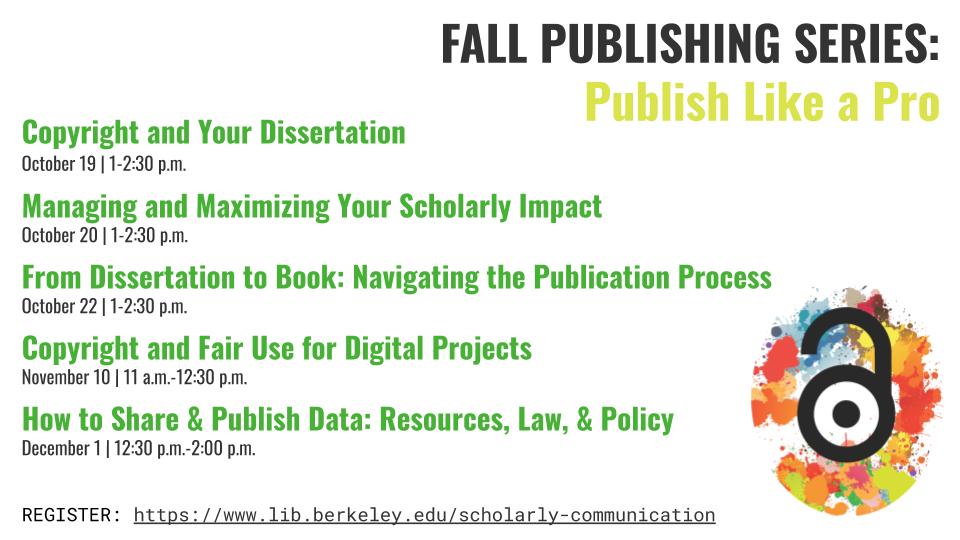
Copyright and Your Dissertation Oct 19, 1-2:30pm
Managing and Maximizing Your Scholarly Impact, Oct 20, 1-2:30pm
From Dissertation to Book: Navigating the Publication Process, Oct 22, 1-2:30pm
Copyright and Fair Use for Digital Projects, Nov 10, 11am-12:30pm
How to Share & Publish Data: Resources, Law & Policy, Dec 1 12:30-2pm